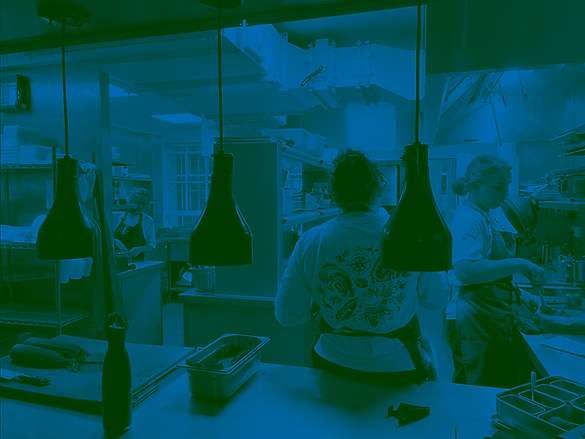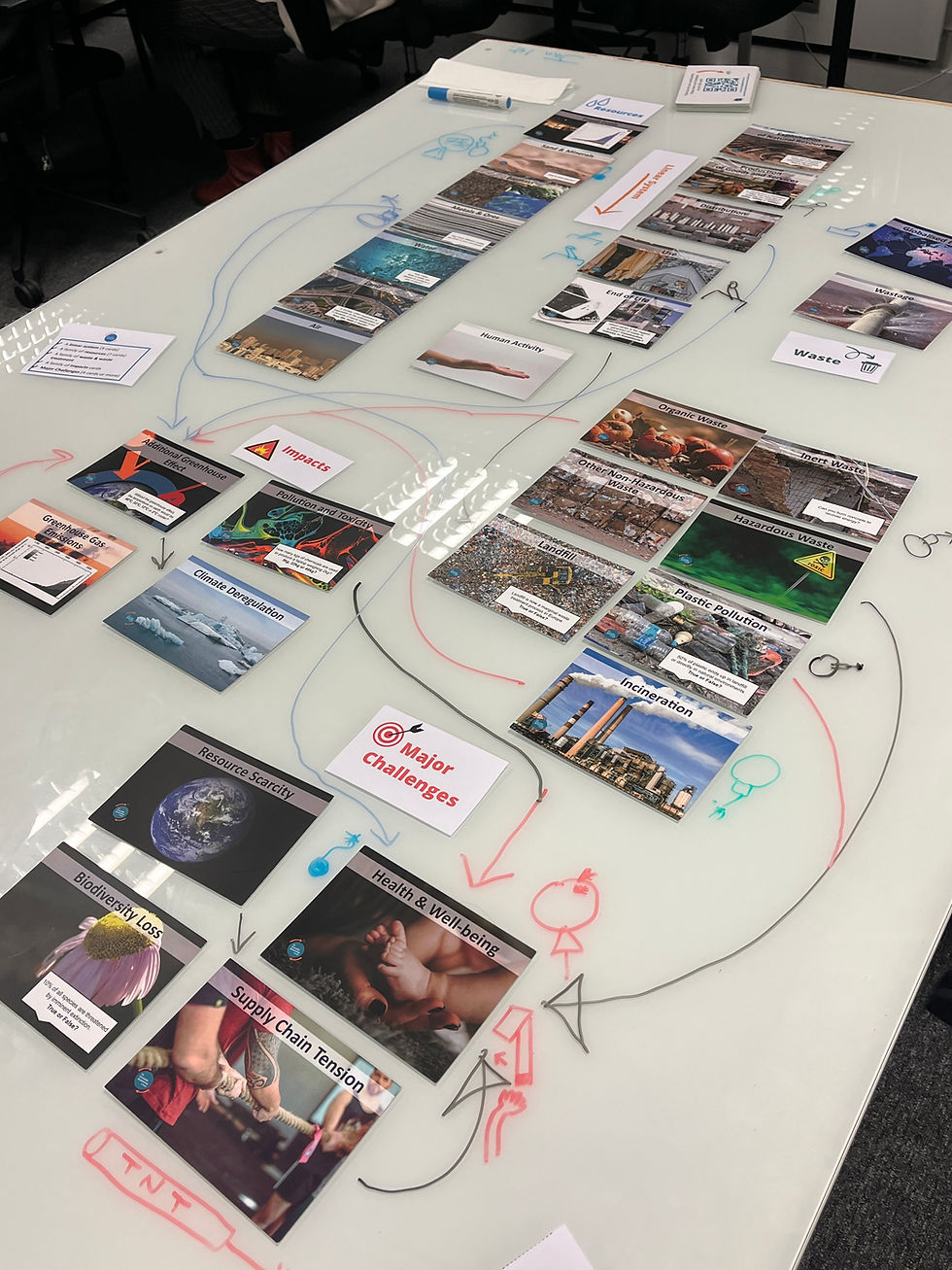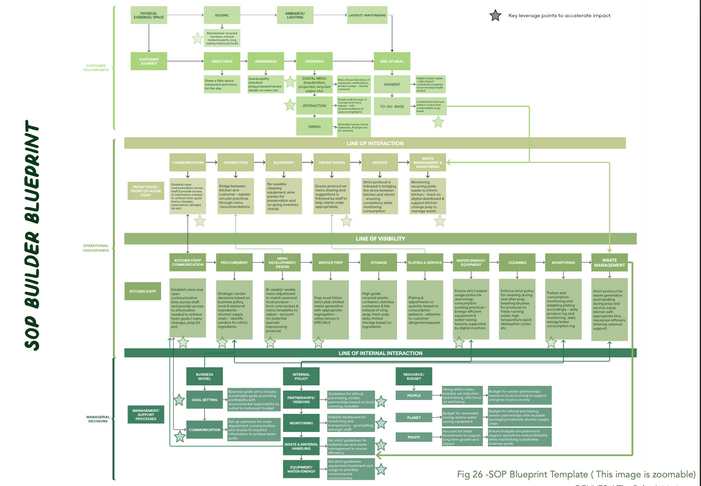The Pulse Initiative
As restaurants navigate increasing environmental and economic pressures, sustainable transformation remains fragmented and challenging. The Pulse Initiative explores how behavior change strategies and circular economy principles can drive systemic, long-term change within restaurant operations.

Client
Personal Project
Timeline
6 months ( 2024)
Type of Work
Design Research
Industry
Hospitality, Circular Economy & sustainable design
Core Competencies
-
Market Research & Data Analysis
-
Quantitative & Qualitative Design Research
-
System Mapping & Analysis
-
Behaviour Change Strategies
-
Circular Economy Systems
-
Stakeholder engagement
-
Affinity Mapping
-
Literature Review
Introduction
The COVID-19 pandemic exposed critical weaknesses in global food systems, disrupting supply chains and highlighting inefficiencies in the restaurant industry. Restaurants, as key influencers of food culture and consumption, have the potential to drive systemic change. However, sustainability efforts in the sector often remain fragmented, treated as short-term initiatives rather than integrated strategies. As environmental and economic pressures mount, the challenge lies in transforming sustainability efforts from isolated actions into scalable, operational strategies. This research explores how restaurants can serve as catalysts for urban food system transformation by aligning sustainability with business objectives.
This project reimagines restaurant operations by exploring the integration of circular economy principles and behavioural change strategies into daily workflows, examining how sustainability can be seamlessly embedded without compromising profitability. The project explores the challenges faced by restaurants and outlines strategies to empower restaurant teams to adopt resource-efficient, cost-effective, and regenerative practices. By shifting sustainability from a compliance-driven burden to a value-generating opportunity, the initiative provides a roadmap for creating a more resilient and responsible restaurant industry.
Challenge
Adapted Research Framework & Methodology

Research Methodology
A systems thinking approach was employed to address sustainability challenges within restaurant operations. The RSA’s From Design Thinking to Systems Thinking Framework (2017) was adapted to provide a structured method for analyzing interdependencies across the industry, identifying friction points, and mitigating barriers to change. This approach is strategically designed to drive operational transformation while addressing potential stakeholder resistance.
Additionally, The Ellen MacArthur Foundation’s Adaptive Strategy for Circular Design (2023) was integrated, outlining six key leverage points essential for circular economy transitions. These principles guide the research methods, ensuring that the proposed solutions are both effective and tailored to the unique context of restaurant operations.
By merging systems thinking with circular design, this framework was used to explore the shift in restaurant operations from linear to circular models.

Literature Review
The literature review delved into the systemic nature of food, drawing from works like Ravenous: How to Get Ourselves and Our Planet into Shape (2023) by Henry Dimbleby and Jemima Lewis. It highlighted the need for a coordinated, cross-sector approach to sustainability in food systems, engaging stakeholders across all levels. Key topics covered included:
Restaurants as Intermediaries: Exploring the critical role restaurants play in shaping food systems and sustainability.
Sustainability in Restaurants: Identifying drivers and barriers to sustainability within the restaurant sector.
Circular Economy Principles:
Exploring CE as a tool to drive sustainability
Circular Economy and SDGs:
Exploring the connection between circular economy principles and the UN SDGs
Circular Economy Challenges: Recognising practical barriers to adopting circular practices in restaurants.
Business Models: Investigating the impact of business models on sustainability.
Policy &
Governance: Analyzing policy implementation challenges, particularly in London, and barriers to change in the industry.

Survey Insights
A survey of 25 restaurant industry professionals, including chefs, managers, and culinary students, explored their attitudes towards sustainability, awareness of circular economy principles, and knowledge of support systems. The 20-question survey, gathered both quantitative and qualitative data, offering valuable insights.
Key barriers identified were:
-
Costs
-
Lack of knowledge
-
Resistance or lack of interest.
System & Stakeholder Mapping Insights
System mapping revealed restaurants' roles within the culinary ecosystem, highlighting connections to environmental and human stakeholders. It identified key dynamics, like material flows and challenges, that go beyond basic stakeholder perspectives.
This was 1 off 4 maps and emphasised the need for multi-stakeholder collaboration and integration against 5 core levers of change laying the groundwork for sustainable, circular design interventions within restaurant operations.





Observational Study Insights
An observational study at two London-based casual dining establishments—one operating traditionally and the other a green Michelin circular restaurant—served as a benchmarking tool. By shadowing staff and conducting interviews, operational gaps and opportunities were identified.
Key Insights:
-
Sustainability as a core necessity vs. balancing the books over sustainability
-
Long-term investment vs. efficiency-driven shortcuts
-
Continuous learning culture and knowledge sharing vs. skepticism and resistance to change
Circular Economy Workshop Insights
A hands-on Circular Economy Collage workshop, using card-based activities inspired by Climate Fresk, provided a structured exploration of global challenges around resource use, waste generation, and the limitations of the linear economic model in business.




Thematic Analysis
Primary data was thematically mapped and colour-coded to identify patterns and key insights, which were then used to inform a structured exploration and brainstorming for the solution.
Data Triangulation
1
Knowledge
&
Training
Surveys, interviews, and observational studies highlighted the importance of knowledge-sharing and awareness in facilitating the adoption of sustainable practices.
2
Mindset
&
Perceptions
Workshops, interviews, and observational studies validated the significance of positive attitudes towards sustainability, identifying industry scepticism regarding financial viability.
3
Systemic Approach to
Cost Barriers
Surveys, interviews, and observational studies highlighted the importance of knowledge-sharing and awareness in facilitating the adoption of sustainable practices.
4
Circular Economy as a
Guiding Principle
Literature reviews, interviews, and workshops confirmed that circular economy principles can serve as a strategic framework for sustainable development.
5
Policy
as a
Lever for Change
Surveys, interviews, and observational studies highlighted the importance of knowledge-sharing and awareness in facilitating the adoption of sustainable practices.
Output: The Pulse Initiative
A Behaviour Change Strategy for Circularity in Restaurant Operations
The name "Pulse" embodies two interconnected concepts:
-
Pulses – Sustainable, nutrient-rich crops central to human diets for centuries, symbolising regenerative practices, food security, and environmental resilience.
-
Pulse Rate – A key indicator of systemic vitality, a nod to the fast-paced, dynamic nature of restaurant operations.
This dual meaning encapsulates the initiative’s vision: aligning restaurant operations with sustainability goals while leveraging circular economy principles.
Implementation
Recognising the fast-paced nature of restaurant work, this initiative proposes a pilot behaviour change strategy embedded into routine tasks. Key outputs, designed to work collectively, include:
-
SOP (Standard Operating Procedure) Service Blueprint – Establishing sustainable workflows.
-
COM-B Model-Based Phased Two-Year Implementation Plan – Utilising a train-the-trainer approach to embed sustainability into daily operations, empowering restaurant teams to lead change, and fostering a culture of environmental responsibility through systematic implementation.


Scalability & Next Steps



Following the pilot initiative, a scalability roadmap was developed, outlining potential partners and a strategic plan for expansion across London. This approach focuses on forming clusters of restaurant groups that adopt and integrate this model, fostering collective transformation.
Each testing and expansion phase assesses restaurants based on the triple bottom line—environmental, social, and financial impact—to ensure viability across different categories. Data from real-time operational testing could then inform food policies and industry standards, making sustainability transitions more accessible for restaurants citywide.
Given the six-month timeline of the project, the next step would be real-world testing to refine and adapt the strategy before broader implementation.
Impact & Future Vision
By closing resource loops, enhancing staff engagement, and aligning sustainability with profitability, the Pulse Initiative envisions a restaurant industry that is not only more resilient but actively contributes to a circular, regenerative food system.By embedding sustainability into daily operations and adopting a staff-centric approach, it demonstrates how behavioral change and accountability across all organisational levels are key to lasting transformation. Stakeholder insights reinforce the importance of engaging employees to drive systemic change.
While the proposed strategies establish a strong foundation, time constraints limited extensive testing. The findings emphasize the need for policy interventions to facilitate scalable implementation. Future research could explore a Policy Recommendation Framework to provide actionable guidance for easing restaurant transitions toward sustainability.By integrating staff engagement, operational strategies, and supportive policies, this project illustrates how restaurants can serve as catalysts for broader food system transformation. London’s restaurant sector, in particular, has the potential to lead by example, fostering resilience and contributing to global sustainability goals.
